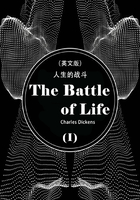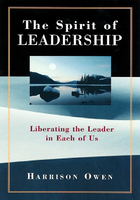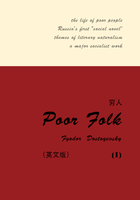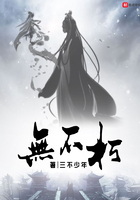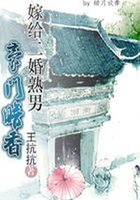The short story you are about to read is the most mysterious and ethereal that Winston Spencer Churchill ever wrote-and as the gifted author of twenty million words and ten thousand speeches, he had many opportunities. But the more one knows about Churchill, the more one understands how he came to write The Dream, and why this small offering tells us so much about the inner life of the man whose hours upon the public stage saved liberty at a moment of extreme danger.
Churchill wrote the story in 1947, a low point in his political career. Two years earlier, British voters had turned his Conservative Party out of office. Easily reelected to his own seat, the former Prime Minister became a frustrated but feisty Leader of the Opposition. "Perhaps it is a blessing in disguise," his wife, Clementine, had observed at the time. "At the moment," Churchill had shot back, "it seems quite effectively disguised."
Political reverses often brought out the best in this statesman-writer, who won the 1953 Nobel Prize for Literature-not for any specific book but for the totality of his work. Churchill's greatest war memoir, The World Crisis, was published at a similar low point, after he had lost his seat in Parliament in 1922–24-the only significant gap in a remarkable political career that stretched from 1901 to 1964. His greatest biography was Marlborough, the life of his ancestor John Churchill, the commander and diplomat who led England to a string of victories over France in the early 1700s. Churchill wrote it in the 1930s, as he grieved over Parliament's failure to heed his warnings about Hitler.
Now it was 1947. And Churchill, doggedly leading a restive minority of Conservatives in the House of Commons, was once again denounced as being out of sync with the British people.
***
The poignancy of The Dream is heightened by the appearance in the story of Winston's father, Lord Randolph Churchill. Dead of a brain tumor in 1895 at the age of forty-six, when Winston was just twenty, Lord Randolph had not lived to see, nor indeed had ever imagined, his son at the pinnacle of their country's affairs.
Lord Randolph's own career had lasted scarcely twenty years. Elected to Parliament as a Conservative in 1874, he rose meteorically, with a crackling wit and devastating speeches attacking the ruling Liberal Party. After the Conservatives triumphed in the 1884 election, he was made Leader of the House of Commons and Chancellor of the Exchequer, the British equivalents of America's majority leader and Secretary of the Treasury, and positions that usually led to becoming prime minister. Famous for the policy of progressive Conservatism he called "Tory Democracy," Lord Randolph argued that the Conservatives should adopt, rather than oppose, popular reforms, and thereby earn the confidence of the working classes. But in 1886 he resigned over a trivial matter, never to rise again. He'd been Chancellor for barely a year; his son would occupy that same office for five years in 1924–29, along with nearly all the other significant offices of state. Compared with Winston, Randolph was a footnote in British history.
In his 1930 autobiography, My Early Life, Churchill admitted that he had enjoyed only three or four meaningful conversations with his father, who had never thought he would amount to anything. But contrary to legend, Churchill was probably no more ignored by his parents than most upper-class boys of the Victorian era. At home, they were usually confined to the nursery, except for an occasional outing or brief presentation to visitors. At the age of seven or eight, they were sent away to boarding school, which depressed the sensitive Winston more than most.
Yet Lord Randolph had put a particularly disapproving face on that of a Victorian father. Winston as a boy had worshipped his father from afar, but he never conquered Lord Randolph's disdain. It was his lifelong regret that his father did not live to see what he had achieved. And it is part of the artistry of this tale that the inquisitive young father is not allowed to know what his seventy-three-year-old son has done with his life.
***
The Dream is replete with the broad-sweep historical surveys typical of Winston Churchill, and throughout the story he often has to update his father. Winston informs Lord Randolph that George VI is now King-because the Duke of Clarence, son of Edward VII, had died before marrying Princess May of Teck, who duly married his brother, the future George V, and became mother to George VI.
Lord Randolph is pleased with the continuance of British political traditions. The "closure" and the "guillotine" (respectively, a motion to end a debate and an agreement to curtail it) are still used in Parliament. The Carlton Club, beloved by Conservative politicians, still stands (Lord Randolph doesn't realize it was bombed flat in World War II and had to be rebuilt). The Primrose League, a Conservative citizens' support group that Lord Randolph founded, is stronger than ever. The Turf Club and the great races-the Oaks, the Derby, the Leger-live on for lovers of horse racing (both Lord Randolph and his son owned and raced thoroughbreds). The Church of England survives-and here Winston's photographic memory calls up the exact words his father said about it in 1884.
The conversation turns to politics, limited by Lord Randolph's ignorance of everything after 1895. "I always believed in Dizzy," he remarks of Benjamin Disraeli, the famed Conservative prime minister who died in 1881. Winston agrees, while assuring him that the idea of replacing the monarchy with a republic, advanced by the political thinkers Charles Dilke and Charles Labby in the nineteenth century, is as "dead as mutton."
The Prime Minister when Lord Randolph died was Lord Salisbury, and for a moment Randolph is taken aback when Winston says that Lord Salisbury is the Conservative leader in the House of Lords. Winston explains: this is the grandson.
Referring to one of his leading Conservative rivals, Joseph Chamberlain, Lord Randolph says, "I always mistrusted Joe"; but his son is worried about another Joe, in Moscow.
What the two Churchills do have in common is the world they shared, "the days of Queen Victoria and a settled world order," that "Land of Hope and Glory" so different from today as to seem incomprehensible. Their class, as William Manchester wrote in a recent foreword to My Early Life, "were masters of the greatest empire the globe has ever known, comprising one-fourth of the earth's surface and a quarter of the world's population, thrice the size of the Roman Empire at full flush…. One percent of Britain's population-some 33,000 people-owned two-thirds of its wealth, and that wealth, before two world wars devoured it, was breathtaking…. England's gold sovereign was the strongest currency on earth…. The Near East and the Far East were so called because they were, respectively, near and far from London. And in every time zone the world's clocks were measured-as they still are-by Greenwich Mean Time."
Lord Randolph, thrust suddenly into 1947, is shocked that India, Burma, and so much more that had been British has been lost. A government once the preserve of classical Liberals and Conservatives is dominated by socialists. The "franchise," or right to vote, now extends even to women! Winston assures his father that the socialists have only a few years left, since the Septennial Act (which allowed seven years to pass before a mandatory election) had been amended to require just five years.
On the other hand, Winston's father is surprised that Blenheim Palace, the nation's eighteenth-century gift to his victorious ancestor John Churchill, First Duke of Marlborough, is still in the family. Winston tells him that Blenheim made itself useful in the war-and here the story takes a sharp turn. His father bolts upright at mention of the thing he had always feared most. Winston, a lifelong democrat, reveals perhaps his inner doubts about democracy when he replies: "We have had nothing else but wars since democracy took charge."
Asked to recount nearly fifty years of strife, Winston begins with the South African Boer War, which began in 1899, when Britain set out to "avenge Majuba," a skirmish with the Boer settlers that English troops had lost badly in 1881. By 1902 Britain had conquered the Boer Republics of the Transvaal and the Orange Free State, and melded them with two British colonies into the Union of South Africa. Winston moves on to the two world wars, which devastated the world, and to the Cold War, now developing between the Anglo-Americans and the Soviet Union.
Lord Randolph is stupefied by the terrifying stories his son relates. Toward the end he is impressed with Winston's grasp of the situation, and begins to wonder if his initial doubts about Winston were perhaps premature. We almost think he will comprehend his son's achievements. Almost.
***
The Dream was conceived during a family dinner at Chartwell, Churchill's beloved home in the lush Kentish countryside, twenty-five miles outside London. Pointing to an empty chair at the table, his daughter Sarah asked him, "If you could seat anyone there, whom would it be?" She thought her father would name one of his heroes, perhaps the First Duke of Marlborough, or Caesar or Napoleon. But Churchill quickly replied: "Oh, my father, of course."
It was an intriguing reply, since Lord Randolph (like most men of his day) had not been the most attentive or affectionate of fathers. Yet Winston Churchill was a man of great and generous spirit; he carried no grudges, and had never lost his youthful adoration for the father who had ignored him.
A few months after his dinner conversation with Sarah, working in his customary wee small hours when the rest of Chartwell was asleep, Churchill dictated The Dream. The story takes place in his studio, where he loved to spend time at his favorite pastime-painting in oils. As The Dream begins, he is making a copy of a damaged portrait of his father, painted eighty years before, during the battle over Home Rule in Ireland (which Lord Randolph, but not Winston, had resisted). Suddenly, in the old red leather armchair that today's Chartwell visitors can still see, his father reappears, in the prime of his life.
Churchill first entitled the story "Private Article," showing it only to his family, and resisting their urgings that it be published. In his will he bequeathed the tale to his wife, who donated it to Churchill College, Cambridge. On the first anniversary of his funeral, January 30, 1966, it was finally published, in The Sunday Telegraph. "His last story, locked away in a box for years," read the newspaper's headline. While the story has been woven into a book of Churchill's essays and the official biography by Sir Martin Gilbert, until now it has appeared as a stand-alone volume only in two private printings by The Churchill Centre.
***
Winston Churchill was a man of transcendental powers. He could, it seems, peer beyond apparent reality. Jon Meacham, the author of the seminal biographic comparison, Franklin and Winston, believes The Dream sheds light on Churchill's ability to put a better face on things than they really were: to revere a father who overlooked him; to revere an American President who, in their later encounters, was less than forthright.
Churchill's capacity to move forward amid adversity, whether it was a father he found cold or a friend he found elusive, served him and his country well, for it meant that he could see victory in the shadow of defeat, and light when darkness threatened. "In his memory, Churchill put many things back together," Meacham writes, "including his friendship with Roosevelt, which in Churchill's mind also became one of his treasures. He had done the same with his relationship with his father…. As the years went by, he remembered the high moments more than he did the low."
While uncertain about the existence of a hereafter, Churchill always held that "man is spirit," and believed in a kind of spiritual connection with his forebears. On January 24, 1953, he told his private secretary, John Colville, that he would die on that date-the same date his father had died on in 1895. Twelve years later Churchill lapsed into a coma on January 10, but Colville assured the Queen's private secretary: "He won't die until the 24th." Unconscious, Churchill did just that.
One question about The Dream that continues to tantalize is whether the account was all fiction. When asked this question by friends who had read the story, Winston Churchill would smile and say, "Not entirely."
-Richard M. Langworth, CBE


